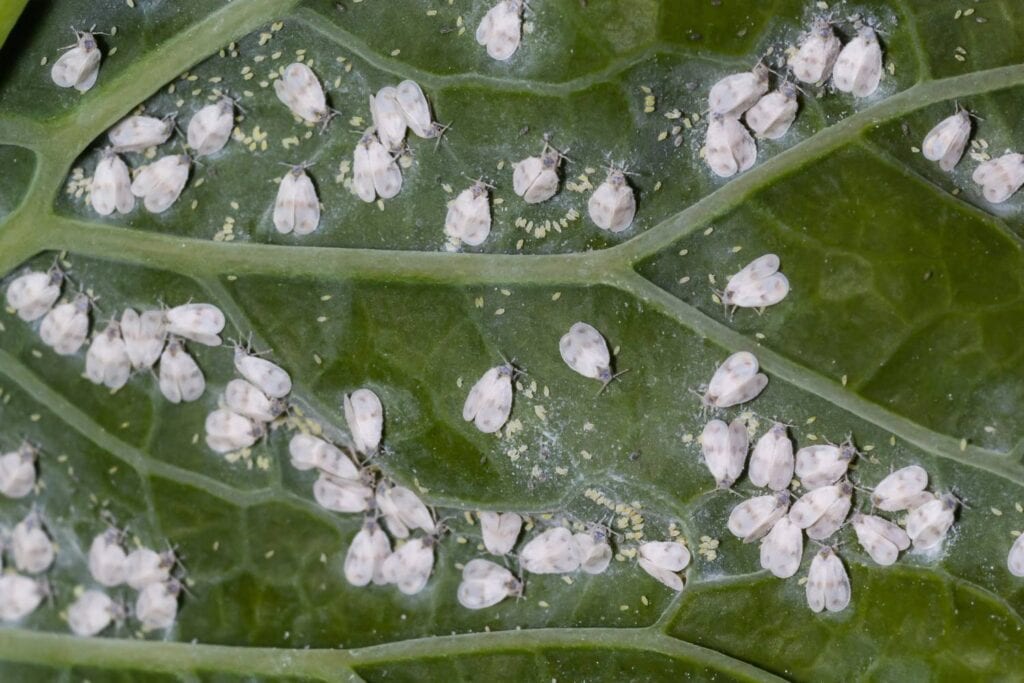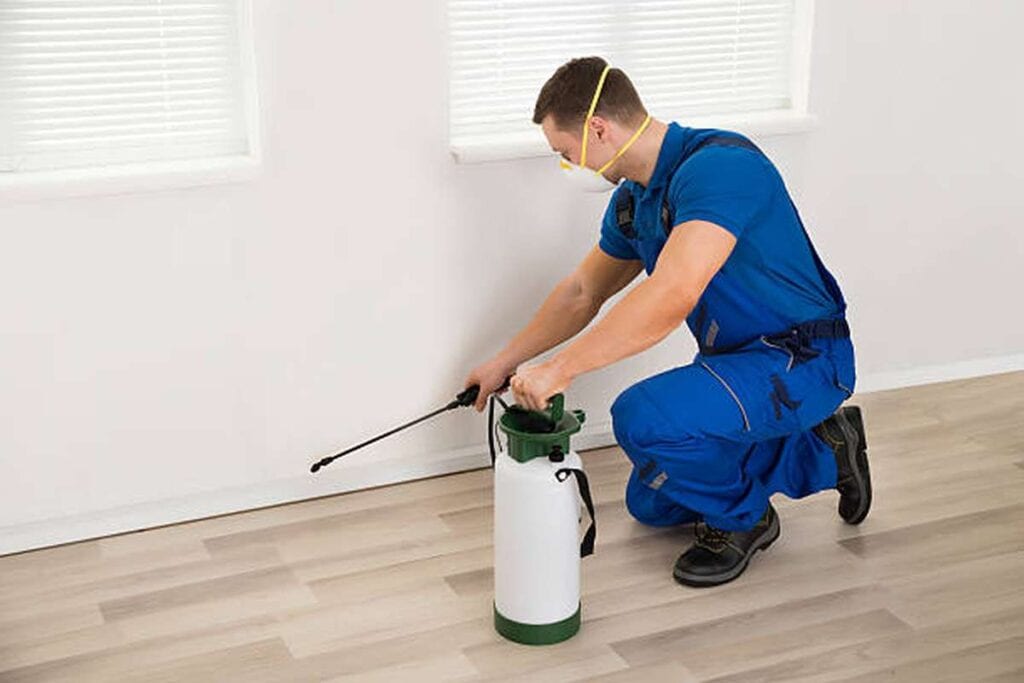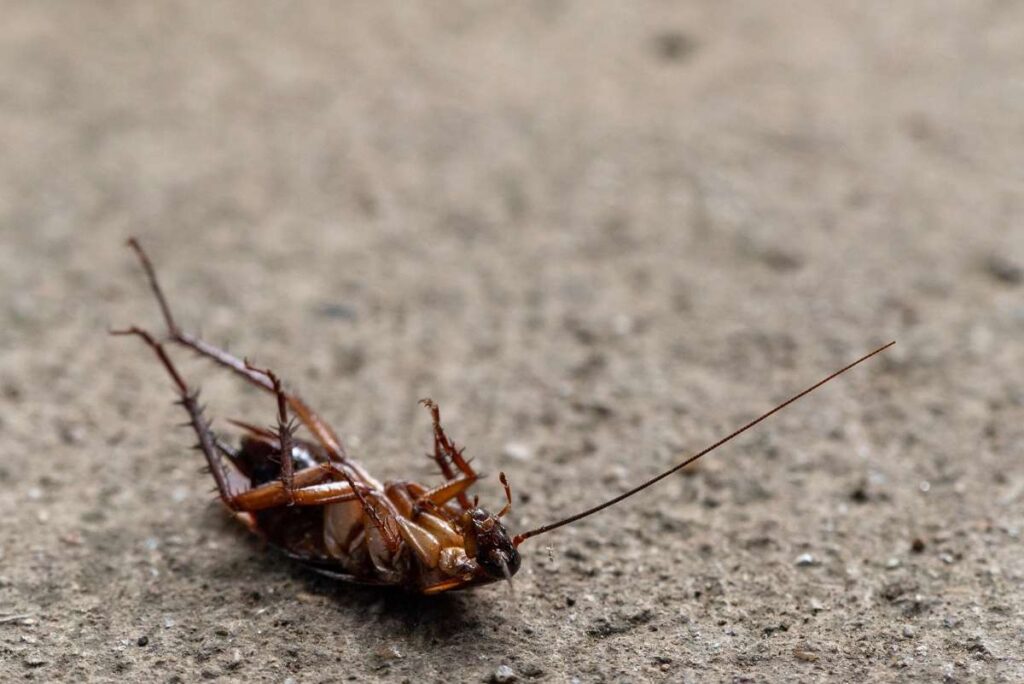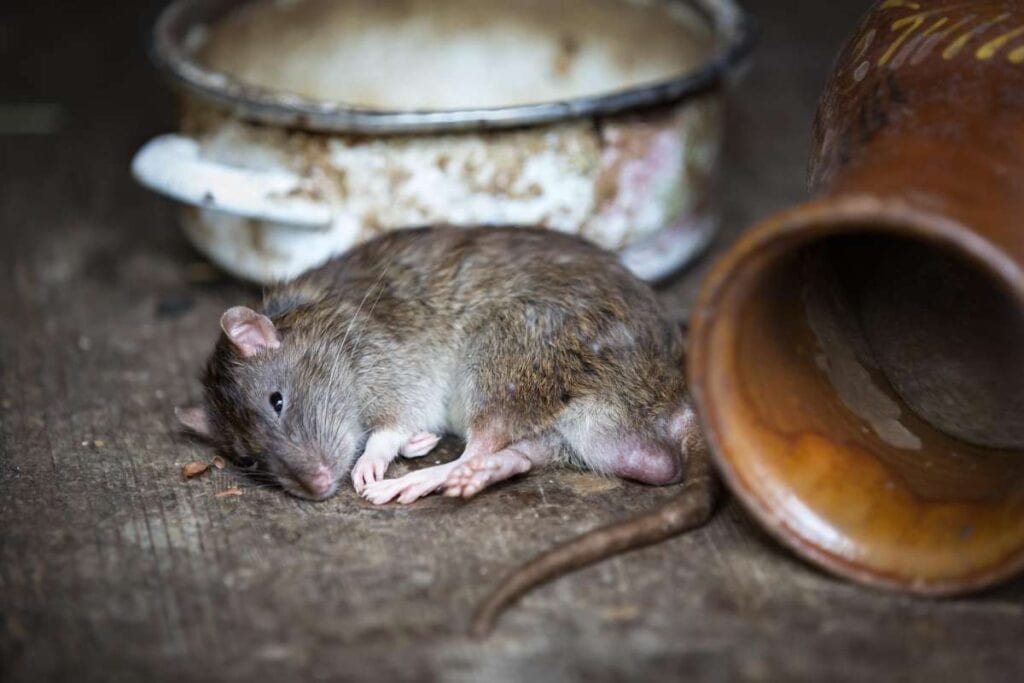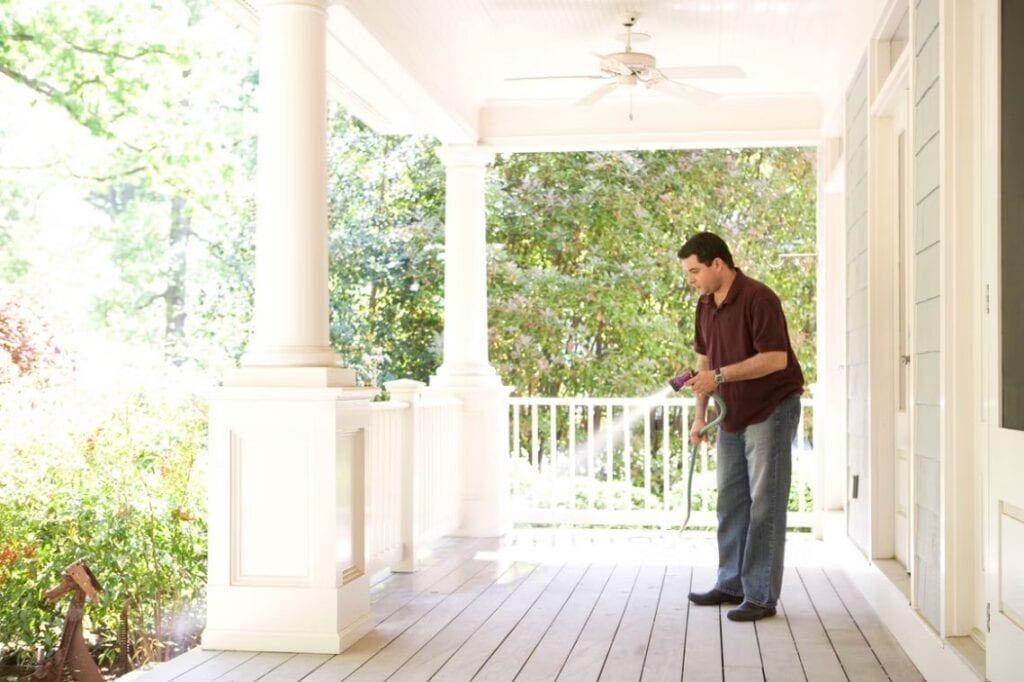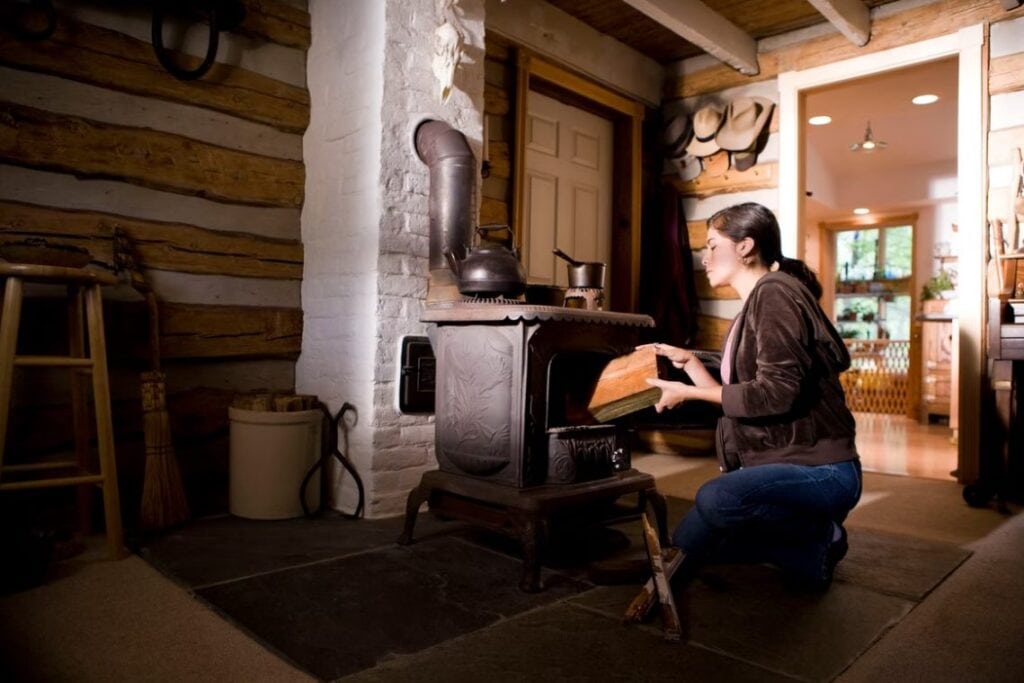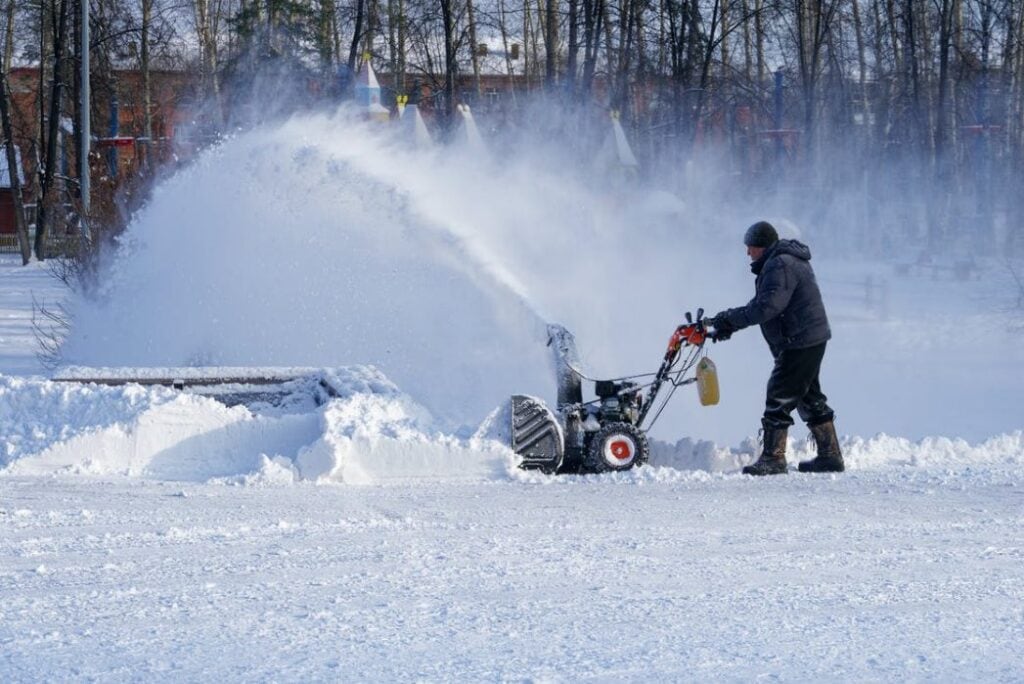Pests may fall inactive in the winter, but that doesn't mean you're free from dealing with insects and rodents. Winter pests are looking for warm and cosy locations to hide and devour food when the weather is chilly outside. This includes crawling into your home or company.
This guide will teach them about the most frequent winter pests you may still encounter during the winter season. This winter, the most effective method to avoid an infestation is to be aware of the indicators you should look for.
What Pests Activate During The Winter Season?
During the winter, when the environment outside becomes harsh and hostile, many pests seek sanctuary in their homes to escape the severe weather. A more in-depth look at a few typical winter pests is this: When the weather outside gets cold and unforgiving in the winter, many pests seek shelter inside our houses. These are some of the most frequent wintertime pests, broken down into more detail:
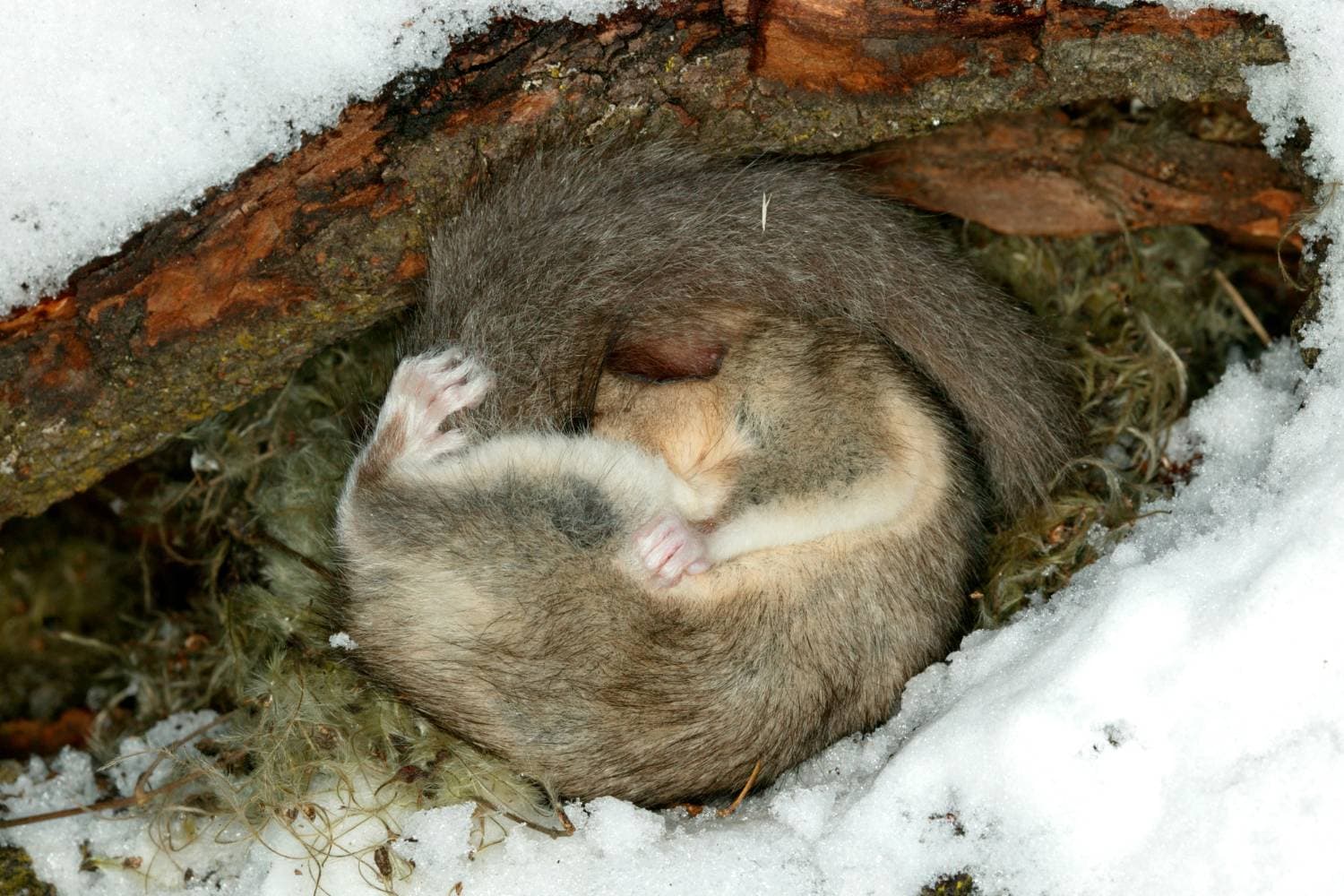
Cockroaches
Most cockroach species are killed off at 15 degrees Fahrenheit or lower. For the winter, cockroaches may seek refuge indoors, often in dark, damp areas such as basements or crawl spaces. But even at temperatures below zero, some species keep moving.
Cockroaches may still be around, but they breed slower due to the cooler weather, which generally affects insect development rates. Both adult and juvenile cockroaches can enter a diapause stage in certain regions and spend the winter there.
Ants
During winter, ants, such as the red imported fire ant, can dig underground to keep warm. Nevertheless, many colonies can only live in freezing temperatures with mild winters. If the temperature falls below 41 degrees Fahrenheit, ants will cease. To stay warm enough to feed throughout winter, these ants build their nests close to loblolly pines, whose bark absorbs sunlight.
Bed Bugs
Bed bugs are a problem year-round, but they could appear even in the dead of winter if you're on the road a lot. You should check your hotel room for anything that may have been stowed away in someone else's luggage because they are expert hitchhikers, and you should also check your possessions upon returning home to ensure they won't cause any problems. You should not try to remove bed bugs on your own if you discover an infestation this winter; instead, contact experts immediately.
Mosquitoes
Mosquitoes are quite vulnerable to high and low temperatures because they cannot control their core temperature. Female mosquitoes go into hibernation or diapause to make it through the winter in colder climates. The female mosquito will look for a place to overwinter, such as a burrow, a cave, a storm drain, etc. Cold weather is the leading cause of death for male mosquitoes since they do not enter diapause.
Consider using preventative pest management to keep mosquitoes at bay when the weather warms up and the days are longer in the spring. Reducing mosquito breeding grounds can be as simple as emptying your gutters of any standing water, whether from old tyres, flower pots, or any other source.
Bees & Wasps
There are a variety of strategies that bee species employ to survive the winter season. Honeybees will spend most of their wintertime inside the hive, gathering closely around the queen and generating heat by flapping their wings. The majority of bumble bees, however, hibernate underground.
Once temperatures drop below freezing, wasps can no longer tolerate the severe weather and eventually die out. Despite this, the queen bee will not only mate but also search for a secure place to hibernate throughout winter.
Spiders
Some spiders may continue to be active throughout the winter, although there is a major decrease in their activity until the temperatures recover to spring or summer. Black widow adults may spend the winter in various indoor and outdoor hiding places, including crawl spaces and sheds.
There have been reports of brown recluse spiders dormant in temperatures below 44°F. For some reason, spiders are less active during colder weather, one of which is that fewer prey species are available.
Mice And Rats
During winter, it's important to remain vigilant for rodents like mice and rats. In addition to not hibernating, they are both versatile rodents. If the weather drops, rodents like mice and rats may seek refuge in your home. If they discover water and food inside your home, they will most likely remain until the weather warms up.
Mice and rats will invade your home year-round if given the chance, but winter is often when you'll notice more of them than usual since they seek shelter indoors. Mice and rats can fit into crevices no larger than a cent, and a single pregnant mouse can spread an epidemic throughout a whole neighbourhood. You should contact the experts immediately if you notice any signs of rodents, as these pests can spread various diseases.
Top Pest Control Advice For The Winter
It is important to handle pest control seriously during the winter. These pests could quickly spread across your property if you do nothing to stop them. For effective pest control in the winter, it's ideal to make plans to eradicate the problem as soon as you notice any signs of infestation.
Remove Clutter
Since clutter provides the ideal hiding place, pests like rats and spiders love to inhabit congested spaces. It is highly recommended that you remove any materials stacked in your home, whether newspapers, boxes, or other odd stuff before pests can establish themselves there.
You want to sleep well on beds free of bugs but don't want to pay for pest control. Decluttering your home should be your next step. Bags, shoes, unclean clothes, and delivery packages are common entry points for these bed bugs. You may greatly reduce the number of these pests by clearing out as much clutter as possible from your home.
Regular Home Cleaning
We both agree that winter is the best season to be warm under a comforter. However, you need to prepare for home cleaning regularly if you want to keep your home pest-free. Now, you may relax in your warm comforters while you hire cleaners for your property. The goal is to keep your home clean so pests don't find a place to settle.
Clear Out The Garbage
In the winter, pests love to nest in rubbish, much like they do in firewood. Insects like flies and cockroaches are drawn to the smell, and stray cats, racoons, and other troublesome animals will also seek out any garbage they can get their mouths on.
When you're not using a garbage can, whether it's indoors or outdoors, be careful to close and lock it. Otherwise, racoons and bears, among other wildlife, could gain access to your trash cans. In addition to being a nuisance and potentially threatening your property, these animals will also make a lot of filth that you'll have to clean up.
Inspecting your garbage can for damage, holes, poorly fitting seals, or any other potential entry points for pests should be a regular part of your maintenance routine. You should instead keep the cans away from any outside walls or buildings. More than one hundred feet from your home is ideal, and a minimum of twelve inches is required for compost.
Plumbing Leak Repair
Pests like these will congregate around plumbing leaks because that's where they get their water. Damp wood termites are another consequence of unchecked plumbing leaks that cause wood to become wet. Make sure to fix any leaking pipes as soon as possible to avoid unwanted visitors like rodents and insects or, even more seriously, termites that can eat away at the house's structure.
Keep Up Your Landscape.
The winter season is no reason to put off tending to your garden or landscaping. The presence of termites and rodents is encouraged by unkempt landscaping, overgrown plants, and wood piles. It is important to remember to prune your garden over the winter months to prevent a wide variety of pests from hiding there. Even in the dead of winter, keep your landscape neat by hiring an arborist if you do not have the time to do it yourself.
Seal Pests Out
The best way to keep pests from entering your home is to prevent them from entering in the first place. Inspect the exterior of your home for any foundational cracks or gaps that should be sealed, as well as around any windows or doors. Keep an eye out for cracks and crevices close to the ground that let heat escape; they might be a pest magnet.
Caulk works well for little holes like these, but bigger holes may require a wire mesh patch to hold whatever you choose to cover them. Pay close attention to crevices; winter pests frequently hide in small spaces, so don't disregard them.
Also, you still need to finish after sealing everything. Because the components that seal gaps eventually deteriorate, particularly in severe weather, inspecting the areas regularly for newly formed openings that require sealing is important. If you are still determining where to search, a specialist can assist in identifying potential spots that could be sealed to prevent pest infestation.
Check Your Ventilation And Chimneys.
You should exercise extreme caution if your home features chimneys in the kitchen and the living room. Unfortunately, chimneys are sometimes the most disregarded component of a property, giving pests a foot in the door as they seek warmth. It is imperative that the chimneys be cleaned and that the vents of the chimneys be inspected for any indications of a pest infestation. To keep pests, ensure your house has plenty of ventilation.
Check For Insects Upon Bringing Things Inside
Moving things from the basement, outside, or even a shed into your home raises the possibility of pest infestation. Do not be startled if you discover a few spiders when removing and rearranging items from their boxes; this is typical for Christmas trees and decorations that remain in darkness throughout the year.
You may aid in preventing these pests by giving all of the items you bring into your home from storage, including decorations, old clothing and coats, furniture, and more, a thorough inspection before you bring them out.
Try shaking boxes and letting the contents fall to the floor to avoid bringing bugs inside. Store your belongings in airtight containers to ensure that bugs and other pests cannot get in, regardless of how long you store them.
Store Your Firewood Properly
Ensure your wood storage is high and far from your house if you rely on firewood for winter heating. A wood pile is like a "luxury hotel" for bugs; it keeps them warm, gives them food, and makes them feel safe all winter.
Whenever you gather wood for your fire, you risk unintentionally inviting bugs into your home unless you take measures to discourage them from this area.
You can do the following to keep your wood storage areas as pest-free as possible:
- Maintain an 18-inch clearance around your woodpile.
- Keep them away from your home.
- Do not lean wood against the wall of a shed or garage.
- Tape off the area around your wood pile.
Schedule Professional Pest Control Companies
When overcoming the issue of winter pests, the most effective and secure method is to hire professionals to handle the situation. Get rid of any pests this winter by scheduling pest control services. So you can spend the winter snuggled up in your blankets, these skilled experts will give a doorstep service to leave your home free of pests.
When Should You Consult A Pest Control Professional?
An important part of good pest management is knowing when to bring the professionals. When you need to talk to an expert, here are some warning signs:
Repeated Pest Sightings
When you keep coming across bugs, no matter how often you try to eliminate them using do-it-yourself (DIY) methods, it can mean that the infestation is getting out of hand, and you need to call in the pros. The persistence of pest sightings, no matter how hard you try to handle the situation independently, indicates a more serious issue that needs professional help and resources.
To protect your house and regain your peace of mind, it's best to get expert help from those who know what they're doing. Only then can the sources of the infestation be located and eliminated.
Health Concerns
The spread of disease, the induction of allergies, and the development of skin irritations are ways some pests, like cockroaches, rats, and bed bugs, can endanger your health and your loved ones. Get in touch with a pest control company immediately if you or anybody in your family has any unexplained health problems that pests could cause.
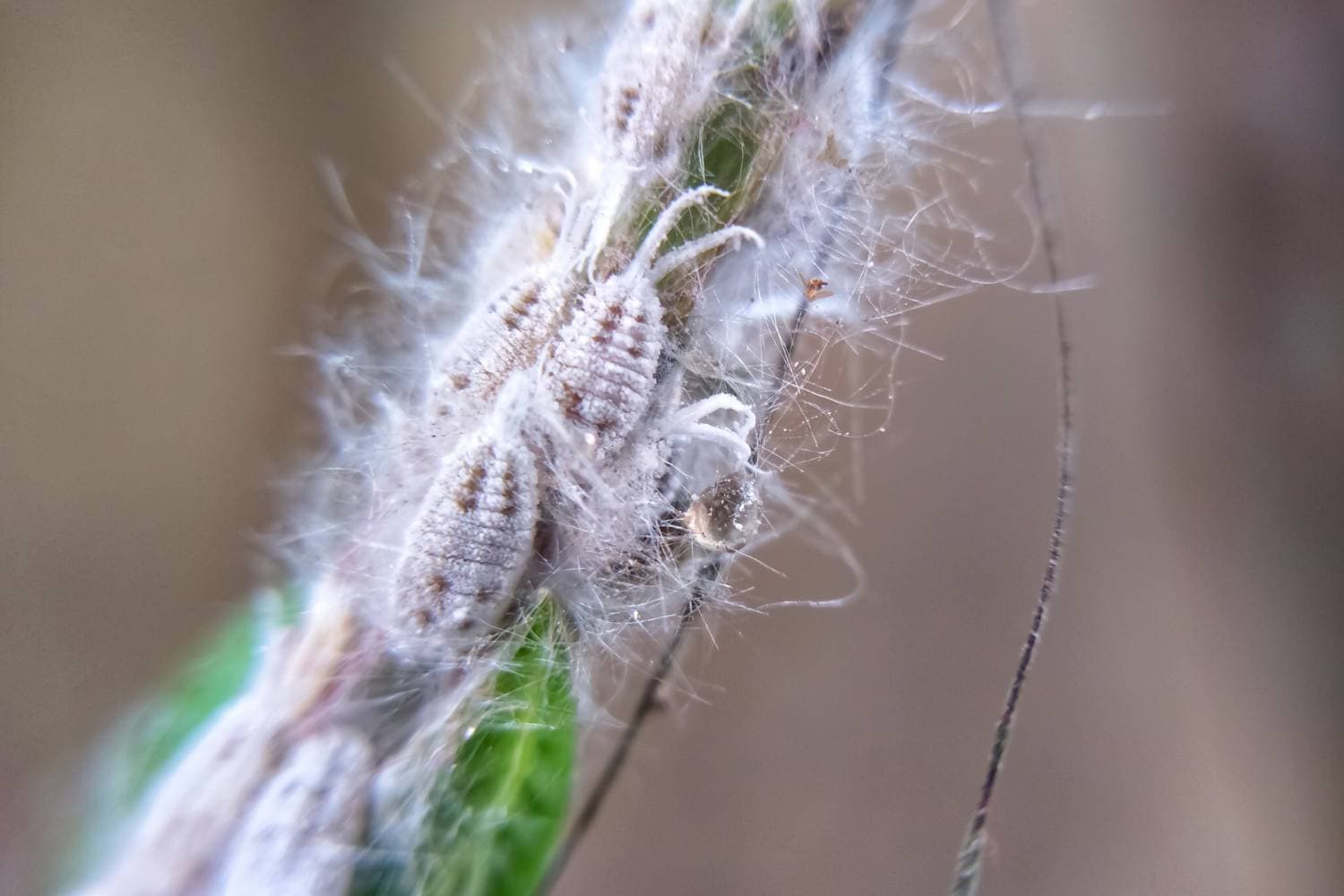
Property Damage
Destructive pests like termites and rats can significantly damage your property over time without your knowledge. Suppose you observe any evidence of structural damage, such as gnaw marks on furniture, chewed wires, or holes in walls. In that case, it is essential to contact a professional pest control service to evaluate the situation and take the necessary steps to address it.
Persistent Problems
Suppose the problem continues or gets worse over time. In that case, professional help is needed to address the root cause of the infestation thoroughly, even if you're committed to getting rid of the pests using common over-the-counter products and prevention techniques. The persistence of the pests, despite your best efforts to deal with the issue on your own, highlights the necessity of seeking professional help.
Hiring a professional insect control company means they will check the area extensively, collect all the materials they need, and use innovative techniques to get rid of the bugs and keep them away. This will put your home's safety and comfort back on track.
Conclusion
Winter pests, such as cockroaches, ants, bed bugs, mosquitoes, bees, and spiders, seek shelter in homes to escape harsh weather conditions. Cockroaches are killed off at 15 degrees Fahrenheit or lower, and they may seek refuge indoors in dark, damp areas like basements or crawl spaces.
Ants, like the red imported fire ant, dig underground to keep warm, but many colonies can only live in freezing temperatures with mild winters. Bed bugs can appear even in the dead of winter, and it is important to check hotel rooms and possessions upon returning home to ensure they won't cause problems.
Mosquitoes are vulnerable to high and low temperatures, and females go into hibernation or diapause to survive in colder climates. Preventative pest management can help reduce mosquito breeding grounds. Bees and wasps use various strategies to survive the winter season, with honeybees spending most of their time inside the hive and wasps hibernating underground.
Spiders may continue to be active during winter, but their activity decreases until temperatures recover to spring or summer. Rodents like mice and rats are also active during winter, as they seek shelter indoors and can spread diseases. Contact experts immediately if you notice any signs of rodents.
Pest control is crucial during winter as pests can quickly spread across your property. To prevent infestation, make plans to eradicate the problem as soon as you notice any signs of infestation. Remove clutter, such as newspapers, boxes, and unclean clothes, to prevent pests from establishing themselves. Regular home cleaning is essential to keep your home pest-free. Clear out garbage, as pests like rats and spiders love to nest in congested spaces. Close and lock garbage cans when not in use, and keep them away from outside walls or buildings.
Plumbing leaks should be repaired as soon as possible to prevent rodents, insects, and termites from consuming the house's structure. Keep up your landscaping, as unkempt landscaping, overgrown plants, and wood piles can encourage pests.
Prune your garden during winter months to prevent termites and rodents from hiding there. Seal pests out by inspecting the exterior of your home for foundational cracks, gaps, windows, doors, and crevices. Regularly inspect areas for newly formed openings that require sealing, and consider hiring an arborist if you don't have the time to do it yourself.
Chimneys in the kitchen and living room should be cleaned and inspected for signs of pest infestation. Ensure your house has adequate ventilation to prevent pests from entering. Check for insects when bringing items into your home, such as decorations, old clothing, and furniture, and store them in airtight containers.
Store firewood properly, as it serves as a "luxury hotel" for bugs. Maintain an 18-inch clearance around your woodpile, keep it away from your home, do not lean wood against the wall of a shed or garage, and tape off the area around your wood pile.
When scheduling pest control services, it is essential to know when to consult a professional. Warning signs to consider include repeated pest sightings, health concerns, property damage, and persistent problems. If you notice any of these signs, contact a professional pest control company to evaluate the situation and take the necessary steps to address the root cause of the infestation.
Hiring a professional insect control company ensures thorough inspection, collection of necessary materials, and innovative techniques to eliminate pests and keep them away, ensuring your home's safety and comfort.
Content Summary
- Winter pests can still be a nuisance in Australia, seeking warm havens in homes.
- Cockroaches may enter homes during winter, especially in dark, damp areas like basements.
- Ants, like the red imported fire ant, can dig underground to survive winter.
- Bed bugs remain a year-round problem and can appear even in the dead of winter.
- Mosquitoes go into hibernation or diapause during winter, seeking shelter in various places.
- Bees and wasps use different strategies to survive winter, with honeybees huddling for warmth.
- Some spiders remain active in winter, with black widow adults hiding in indoor and outdoor spaces.
- Mice and rats do not hibernate and may seek refuge indoors during winter, posing a risk.
- Effective pest control during winter is crucial to prevent infestations.
- Removing clutter is recommended to eliminate hiding spots for pests like rats and spiders.
- Regular home cleaning is essential to keep pests at bay and maintain a pest-free environment.
- Pests love nesting in rubbish during winter, making proper garbage disposal crucial.
- Plumbing leak repairs are necessary to prevent pests from being attracted to moisture.
- Well-maintained landscapes discourage termites and rodents, making winter pruning important.
- Sealing gaps and cracks in the home's exterior helps prevent pests from entering.
- Regularly inspect ventilation and chimneys to ensure they don't become entry points for pests.
- Be cautious when bringing items inside, as pests may hide in them, especially during winter.
- Properly store firewood away from the house to prevent pests from invading.
- Professional pest control services are recommended for effective and safe pest elimination.
- Schedule pest control services in winter to enjoy a pest-free home.
- Repeated pest sightings indicate a growing infestation, requiring professional intervention.
- Health concerns may arise from pest infestations, necessitating expert pest control.
- Property damage from destructive pests like termites warrants professional evaluation.
- Persistent pest problems despite DIY efforts indicate the need for professional assistance.
- Professionals use innovative techniques to eliminate pests and ensure long-term control.
- Winter is not a guarantee of pest-free homes; awareness is crucial for prevention.
- Cockroaches may slow down breeding in winter but can still be present in homes.
- Ants, when faced with freezing temperatures, may cease activity and seek warmth.
- Bed bugs can hitchhike into homes during winter travels, necessitating thorough checks.
- Mosquitoes are vulnerable to temperature extremes, with females entering hibernation to survive.
- Bees, such as honeybees, generate heat in hives to survive winter, while wasps die off in freezing weather.
- Some spiders, like black widows, may spend winter in hiding, reducing activity due to colder temperatures.
- Mice and rats, versatile rodents, may seek refuge in homes during winter, posing health risks.
- Winter pest control should focus on early intervention to prevent infestations.
- Clutter removal is an effective way to reduce hiding spots for pests in winter.
- Regular home cleaning is essential for a pest-free environment, even during the cozy winter season.
- Proper garbage disposal is crucial to avoid pest attraction in winter.
- Plumbing leak repairs prevent pests attracted to moisture during winter.
- Well-maintained landscapes discourage termites and rodents, which are crucial in winter.
- Sealing gaps and cracks in the home's exterior is vital for winter pest prevention.
- Regular inspection of ventilation and chimneys prevents winter pest entry points.
- Cautious item movement indoors during winter reduces the risk of hidden pests.
- Proper firewood storage away from the house deters winter pest invasions.
- Professional pest control services offer effective solutions for winter pest problems.
- Scheduling pest control in winter ensures a pest-free and comfortable home.
- Repeated pest sightings indicate the need for professional pest management.
- Health concerns related to pests necessitate immediate professional pest control.
- Property damage from pests like termites requires professional evaluation and intervention.
- Persistent pest problems despite DIY efforts signal the need for expert assistance.
- Professionals use advanced techniques to eliminate pests and maintain a pest-free home.
Frequently Asked Questions
Yes, natural pest control methods can be effective in managing pests. These methods typically involve using natural substances and techniques to deter or eliminate pests, such as essential oils, diatomaceous earth, and biological control agents like predators or parasites. While their effectiveness may vary depending on the pest and the specific method used, natural pest control can be a safer and more environmentally friendly alternative to chemical pesticides. However, it's important to note that natural methods may require more frequent application and patience to see results compared to conventional pesticides.
To protect your outdoor spaces from winter pests, you can take several measures:
- Remove Debris: Clear away fallen leaves, branches, and debris from your yard. Piles of debris can provide hiding places and nesting sites for pests.
- Trim Vegetation: Keep shrubs, bushes, and trees trimmed to prevent pests from using them as bridges to access your home.
- Install Outdoor Lighting: Install motion-sensor lights around your outdoor spaces to deter nocturnal pests like raccoons and possums.
- Use Natural Repellents: Consider using natural repellents such as essential oils or predator urine to discourage pests from entering your outdoor areas.
Yes, there are several eco-friendly pest control options available. These methods focus on using natural substances and techniques to manage pests while minimising environmental harm. Some eco-friendly pest control options include:
- Biological Control: Introducing natural predators or parasites that prey on pests to control their populations. Ladybugs, nematodes, and certain types of birds are examples of biological control agents.
- Natural Repellents: Use essential oils, diatomaceous earth, and vinegar to deter pests from entering your home or garden.
- Traps and Barriers: Utilising traps, barriers, and physical exclusion methods to capture or block pests from entering your living spaces without using chemical pesticides.
Some common entry points for winter pests include:
- Cracks and Gaps: Small openings around windows, doors, foundations, and utility penetrations provide easy access for pests like rodents and insects.
- Siding and Roofing: Damaged or deteriorating siding and roofing materials may create gaps or openings that pests can exploit to enter your home.
- Garage Doors: Improperly sealed garage doors and gaps around garage door frames can allow pests to enter your home from attached garages.
- Pipes and Wiring: Gaps around pipes, wiring, and conduits entering your home can provide entry points for pests, especially rodents seeking warmth and nesting sites.
Inspecting your home for pest problems regularly is recommended, ideally at least once a month. Regular inspections allow you to identify and address any signs of pest activity or potential entry points before they escalate into full-blown infestations. A consistent schedule for home inspections can help you stay proactive in pest prevention and maintain a pest-free environment throughout the year.

